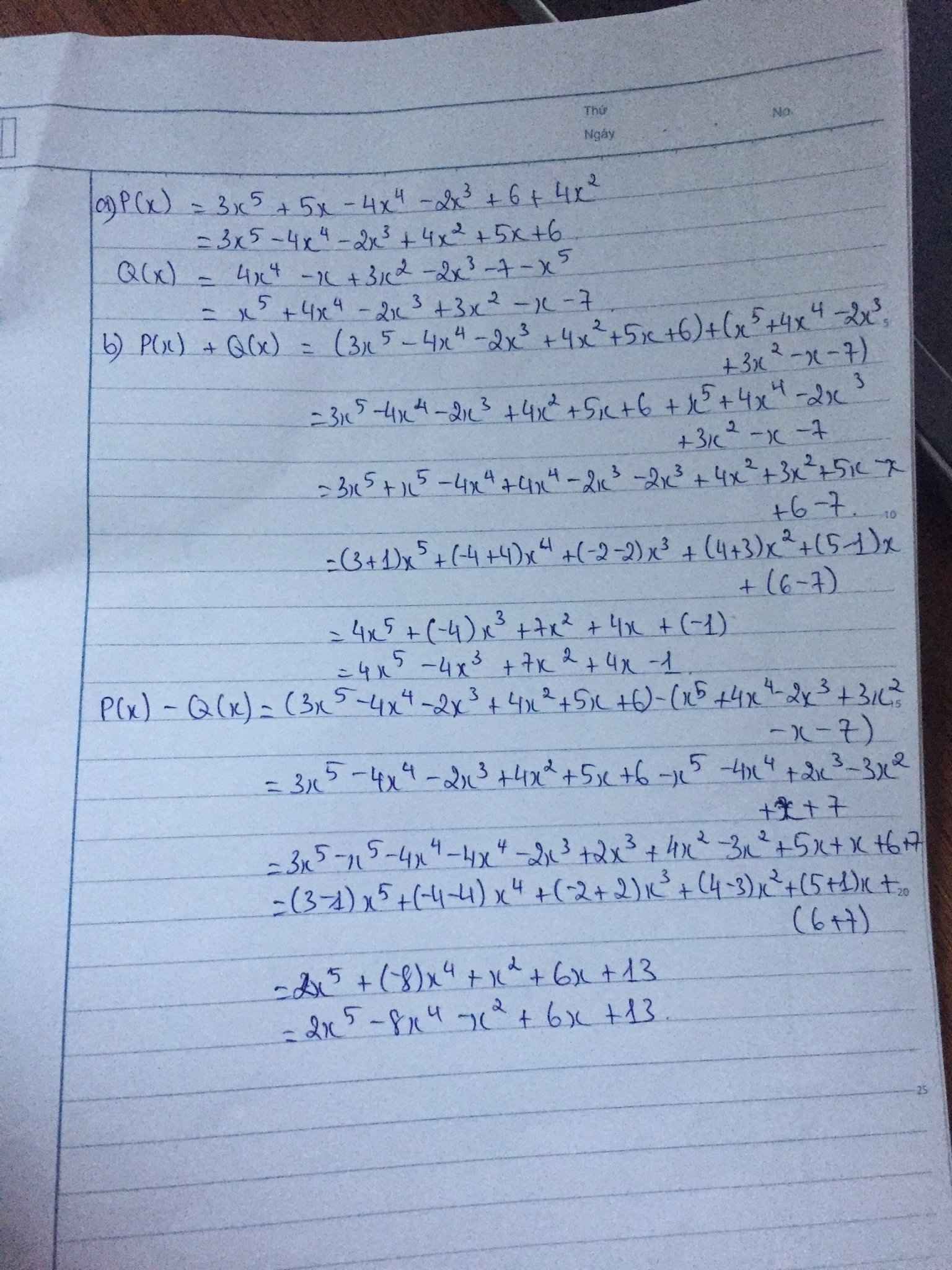cho 2 đa thức: p(x) = 2x^3 - 2x + x^2 - x^3 + 3x + 2 và Q(x) = 4x^3 - 5x^2 + 3x - 4x - 3x^3 + 4x^2 + 1
a) rút gọn và sắp xếp các đa thức theo lũy thừa giảm dần của biến
b) tính p(x) + Q(x) ; p(x) - Q(x)
c) chứng tỏ x=o không phải là nghiệm của 2 đa thức p(x) và Q(x)


a) \(P\left(x\right)=2x^3-2x+x^2-x^3+3x+2\)\(=\left(2x^3-x^3\right)+x^2+\left(3x-2x\right)+2=x^3+x^2+x+2\)
\(Q\left(x\right)=4x^3-5x^2+3x-4x-3x^3+4x^2+1\)
Q(x) \(=\left(4x^3-3x^3\right)+\left(4x^2-5x^2\right)+\left(3x-4x\right)+1\)\(=x^3-x^2-x+1\)
b) \(P\left(x\right)+Q\left(x\right)=2x^3+3\); \(P\left(x\right)-Q\left(x\right)=2x^2+2x+1\)
a) Sắp xếp theo lũy thừa giảm dần
P(x)=x^5−3x^2+7x^4−9x^3+x^2−1/4x
=x^5+7x^4−9x^3−3x^2+x^2−1/4x
=x^5+7x^4−9x^3−2x^2−1/4x
Q(x)=5x^4−x^5+x^2−2x^3+3x^2−1/4
=−x^5+5x^4−2x^3+x^2+3x^2−1/4
=−x^5+5x^4−2x^3+4x^2−1/4
b)
P(x)+Q(x)
=(x^5+7x^4−9x^3−2x^2−1/4^x)+(−x^5+5x^4−2x^3+4x^2−1/4)
=x^5+7x^4−9x^3−2x^2−1/4x−x^5+5x^4−2x^3+4x^2−1/4
=(x^5−x^5)+(7x^4+5x^4)+(−9x^3−2x^3)+(−2x^2+4x^2)−1/4x−1/4
=12x^4−11x^3+2x^2−1/4x−1/4
P(x)−Q(x)
=(x^5+7x^4−9x^3−2x^2−1/4x)−(−x^5+5x^4−2x^3+4x^2−1/4)
=x^5+7x^4−9x^3−2x^2−1/4x+x^5−5x^4+2x^3−4x^2+1/4
=(x^5+x^5)+(7x^4−5x^4)+(−9x^3+2x^3)+(−2x^2−4x^2)−1/4x+1/4
=2x5+2x4−7x3−6x2−1/4x−1/4
c) Ta có
P(0)=0^5+7.0^4−9.0^3−2.0^2−1/4.0
⇒x=0là nghiệm của P(x).
Q(0)=−0^5+5.0^4−2.0^3+4.0^2−1/4=−1/4≠0
⇒x=0không phải là nghiệm của Q(x).